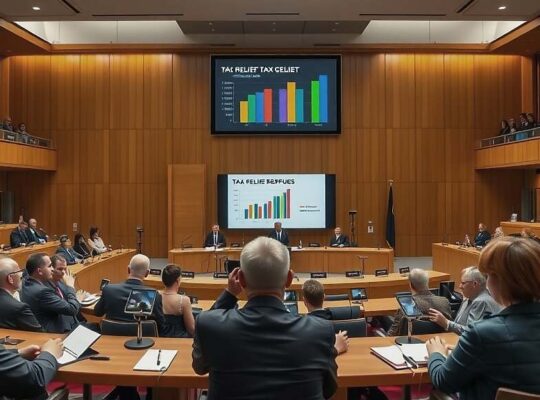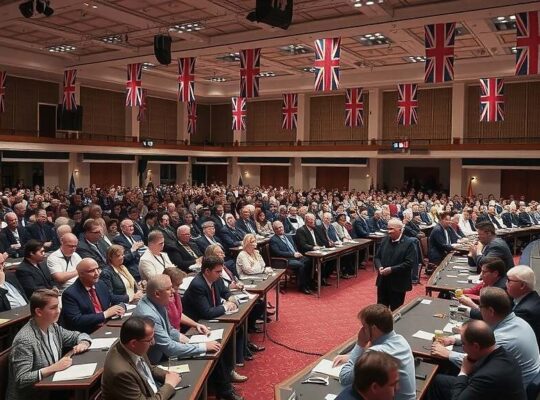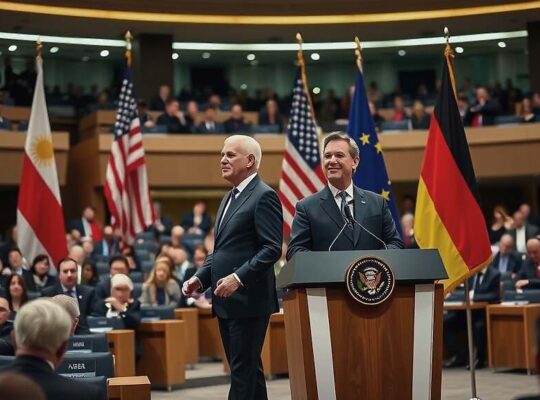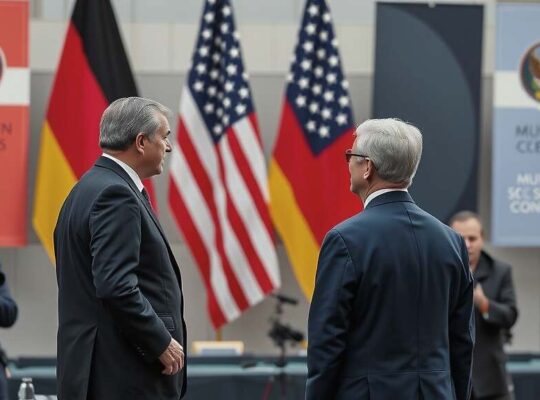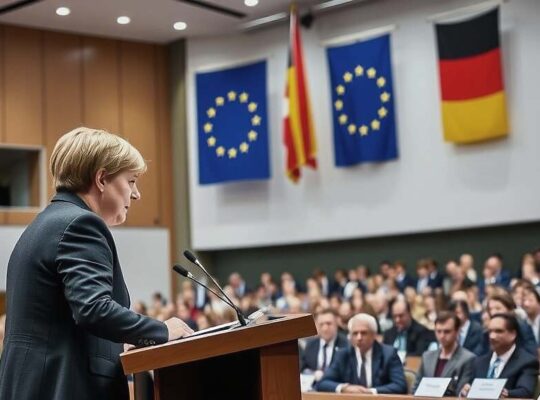The debate surrounding recent comments by CDU leader Friedrich Merz has ignited a fierce internal political row within Germany, prompting Bundestag President Julia Klöckner to publicly defend him and caution against accusations that risk undermining the seriousness of genuine prejudice. Klöckner’s intervention, published in the Frankfurter Allgemeine Zeitung, directly challenged those who have labeled Merz’s remarks as racially motivated, arguing the accusations are not only disproportionate but also carry the dangerous consequence of diminishing the gravity of actual racist behavior.
Merz’s remarks, concerning perceived issues with urban landscapes, triggered widespread criticism and discomfort, even within the governing coalition. He alluded to a time when public spaces – specifically referencing the absence of security bollards at Christmas markets and limitations on park opening hours – faced different safety protocols. These comments, intended to underscore a shift in societal perceptions of safety and public space, were swiftly interpreted by some as a veiled justification for discriminatory practices.
Klöckner vehemently rejected this interpretation, emphasizing that the issues Merz highlighted are matters of societal development and security concerns that transcend partisan politics. “It’s neither right nor left; it has no party affiliation. It’s simply a fact” she stated, clearly signaling her concern that politicizing such a fundamental observation weakens the discourse surrounding racism.
The incident exposes a widening chasm within the German political landscape regarding the language used to address complex issues of urban development and societal change. While the government strives to present a united front, Klöckner’s robust defense of Merz highlights the sensitivities and political risks involved in navigating discussions about public safety and the potential for misinterpretation and accusations of discriminatory intent. The willingness of a senior figure like the Bundestag President to publicly confront such accusations underscores the escalating pressure to carefully calibrate political messaging and avoid inadvertently legitimizing accusations of racism in the process. This episode also raises critical questions about the threshold for assigning such labels and the potential for chilling open discussion on matters of public concern.



